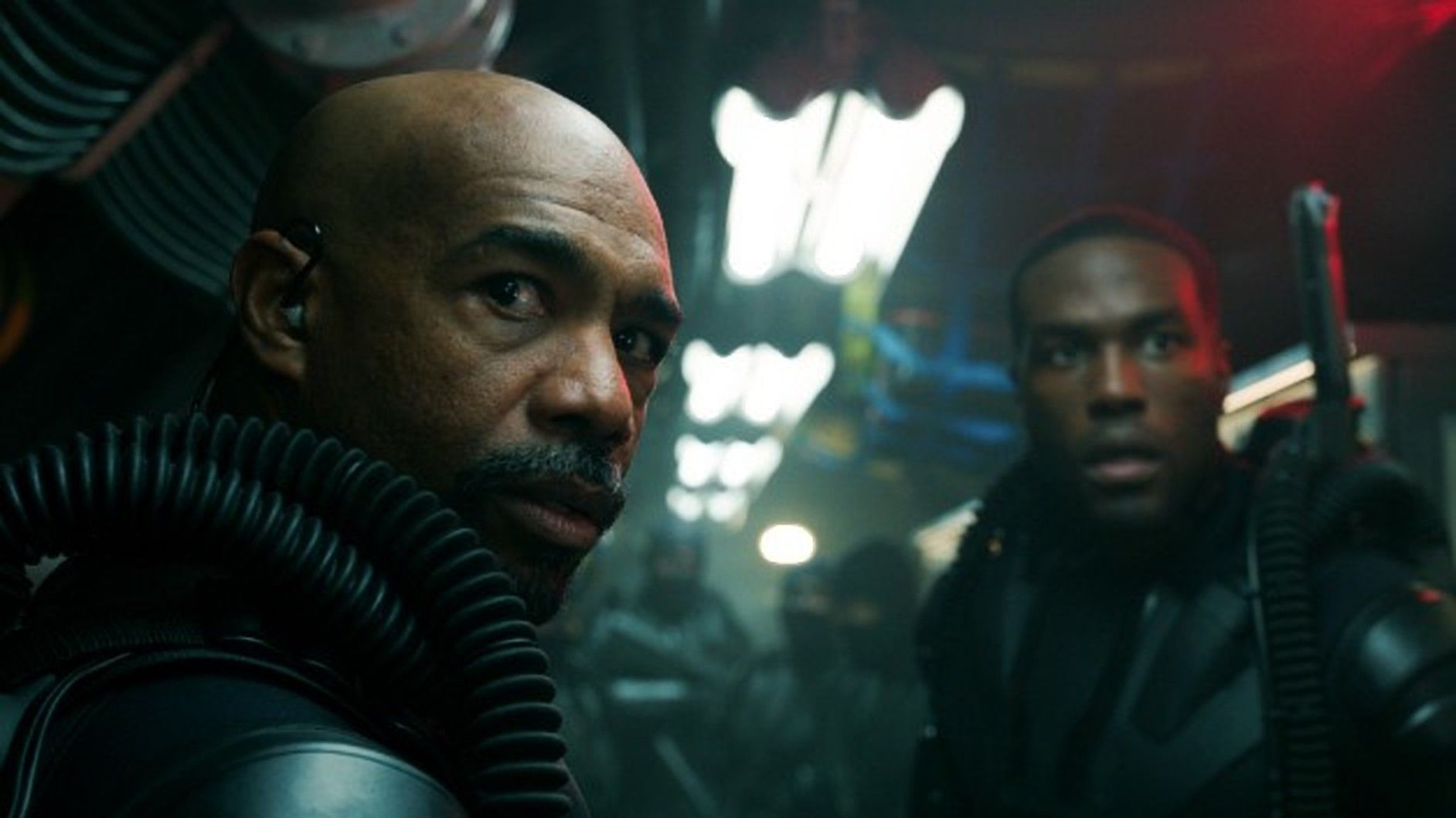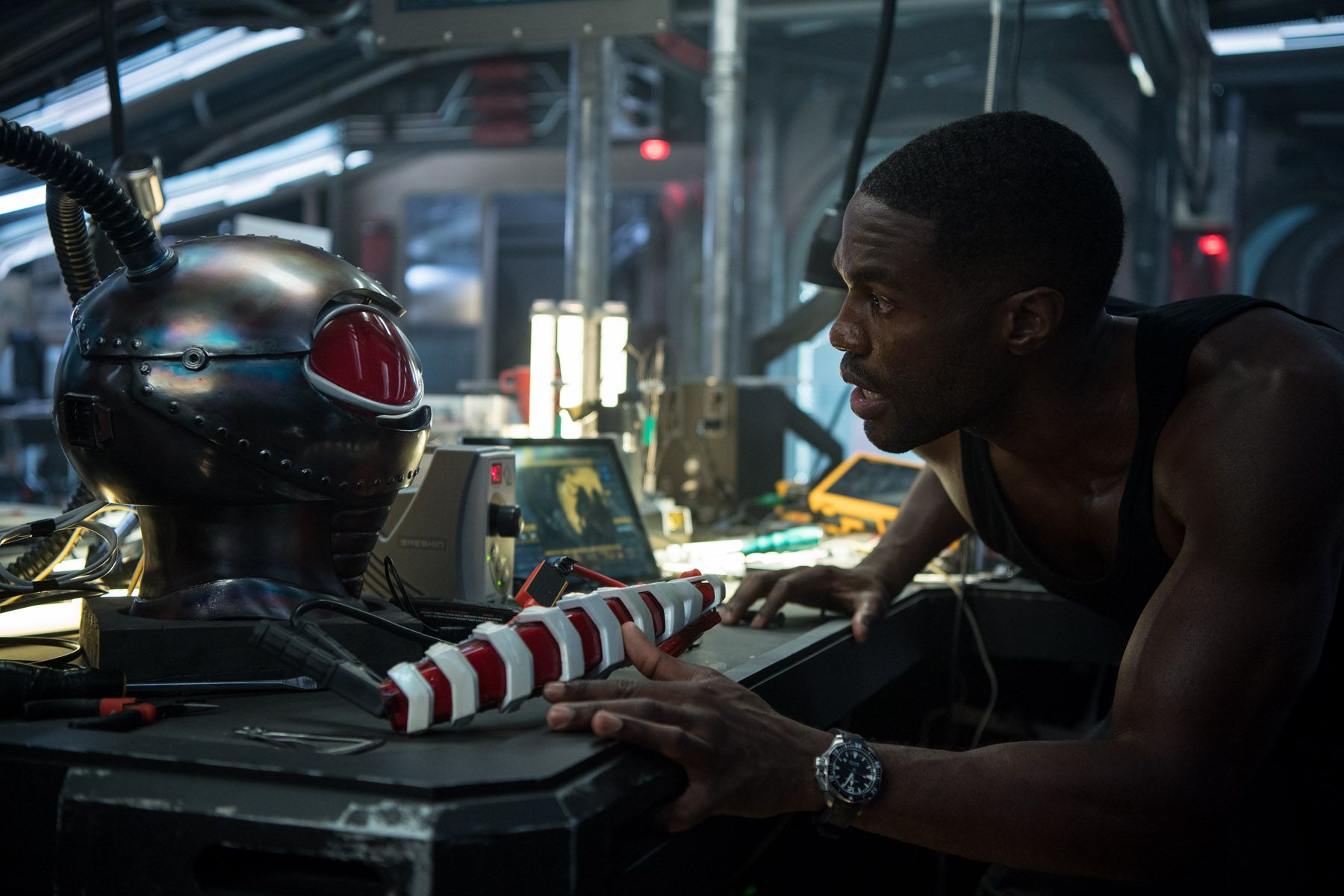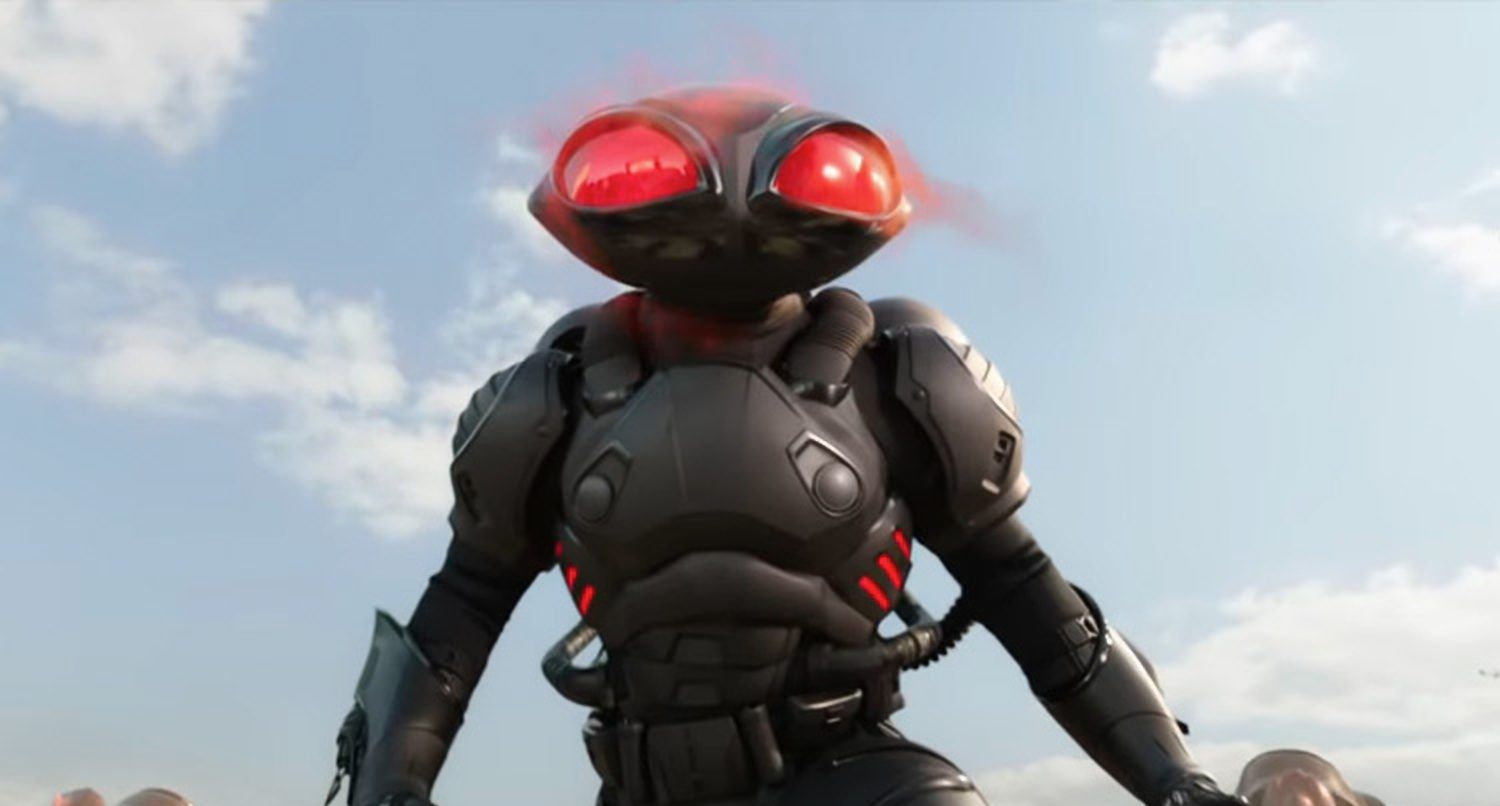Aquaman Movie Villain Black Manta Is the Hero of His Own Story (original) (raw)
The following article contains spoilers for Aquaman, in theaters now.
One of the most compelling elements of director James Wan's Aquaman isn’t the titular hero or the undersea kingdom of Atlantis. It's Black Manta, a relatively minor villain in the overall narrative who nevertheless steals the film out from under an impressive cast. He's effectively the DC Extended Universe's answer to Marvel's Erik Killmonger.
Under The Sea

Manta is introduced in one of the very first scenes of the film, hijacking a submarine alongside his father and their crew of pirates. He’s notably brutal in a way that the rest of the pirates aren’t, murdering people in cold blood when they get in his way. He barely delivers any banter before running the captain of the sub through with his wrist-mounted sword. He’s efficient, cold and aggressive.
But he’s not without a heart. Manta turns out to be surprisingly sweet in his relationship with his father, Jesse. The villain is extremely proud of his parent and his newfound infamy, telling him how the world is beginning to recognize the criminal moves they have been making. Their relationship mirrors the surprisingly healthy connection between Arthur and his own dad, with both men recognizing all the potential their sons have and urging them to embrace it.
RELATED: Aquaman Is a Surprisingly Lovecraftian Superhero Film
One of the best moments for the character comes when his father presents him with a special knife, the one his grandfather once wielded. Jesse tells Manta about how his grandfather fought in World War II as one of the “frogmen,” scuba divers who went into battle underneath the waves. But after years of service, he returned to an America that couldn’t and wouldn’t appreciate him, just for the color of his skin. So, he left the country and became a pirate, the first in a long line of modern day marauders. The film doesn’t treat any of them as terrible people for this decision either, instead just as men who chose their own path. It’s a violent and cruel path, but not one that suddenly turns them into caricatures of villains. They’re still just men.
Their decision to become “villains” is motivated by a real-world injustice, the kind of treatment that saw a number of African-American soldiers electing to remain in Europe after the war instead of going back to a country that didn’t appreciate them or their sacrifices. The ocean becomes a source of freedom for him and his descendants, including Manta. There’s no “power” or “gold” that motivated them to do so, just a righteous and understandable anger at the world around them, and their refusal to just roll with it would be commended if it was done by another character. It reflects the justifiable anger that Arthur also feels for Atlantis and the supposed loss of his mother, and gives Manta more depth than the other villains in the same movie.
NEXT PAGE: Manta's Tale is a Perfectly Justifiable Revenge Story
Death And Fury

That’s what makes the death of Jesse so heartbreaking. During their attempts to stop Aquaman after he arrives on the submarine, Jesse ends up accidentally pinned against a wall by a torpedo. Although Manta begs Arthur to free his father, Aquaman coldly tells him that he got himself into this problem, he can get himself out. Jesse forces his son to tearfully leave him behind, motivating Manta with the same kind of vengeful fury that motivates Arthur against Atlantis.
By the time Manta reappears in the film proper, his desire for revenge has made him forget his old commitments and focus solely on killing Arthur. He receives a suit of armor from Orm and sets to work constructing his modifications. The montage that follows wouldn’t feel out of place in an Iron Man film, giving Manta little moments of creativity, drive and even humor as he constructs one of the most dangerous suits in the DC Universe. It speaks to the humanity of the character, and just how relatable he is.
RELATED: Aquaman Has Already Earned More Overseas Than Wonder Woman & Man of Steel
But that doesn’t detract from just how dangerous he is. His battle with Aquaman across an Italian village is brutal, especially when compared to the primarily CGI-heavy battles that fill the second half of the film. Manta doesn’t hold back, delivering crushing blows and powerful laser blasts whenever he gets the chance. Unlike other superhero villains who try to monologue, he jumps straight to stabbing Arthur and doing his level-headed best to just kill his opponent. It’s the same kind of singular drive that also defines much of what Arthur does, making Manta an even harsher reflection of the hero.
Where It Goes From Here

As the film ends, Arthur has claimed the throne of Atlantis and embraced what it means to actually be a hero. Meanwhile, Manta’s wounds heal and he prepares to go back to war with Arthur for his actions, setting up the inevitable sequel.
RELATED: How Aquaman Changes the Origin of Black Manta's Armor
But by making Manta inherently compelling in his own right while casting him as a dark (but understandable) reflection of the main hero, Aquaman does to Black Manta what the DCEU couldn’t manage with bigger name bad guys like Lex Luthor, Joker or Ares: Make him compelling in his own right. Manta would be the hero of his own movie if he had the chance, and could be the breakout villain the DC films have been sorely lacking.
Directed by James Wan, Aquaman stars Jason Momoa as Aquaman, Amber Heard as Mera, Patrick Wilson as Ocean Master, Willem Dafoe as Nuidis Vulko, Yahya Abdul-Mateen II as Black Manta, Temuera Morrison as Thomas Curry, Dolph Lundgren as Nereus and Nicole Kidman as Queen Atlanna.